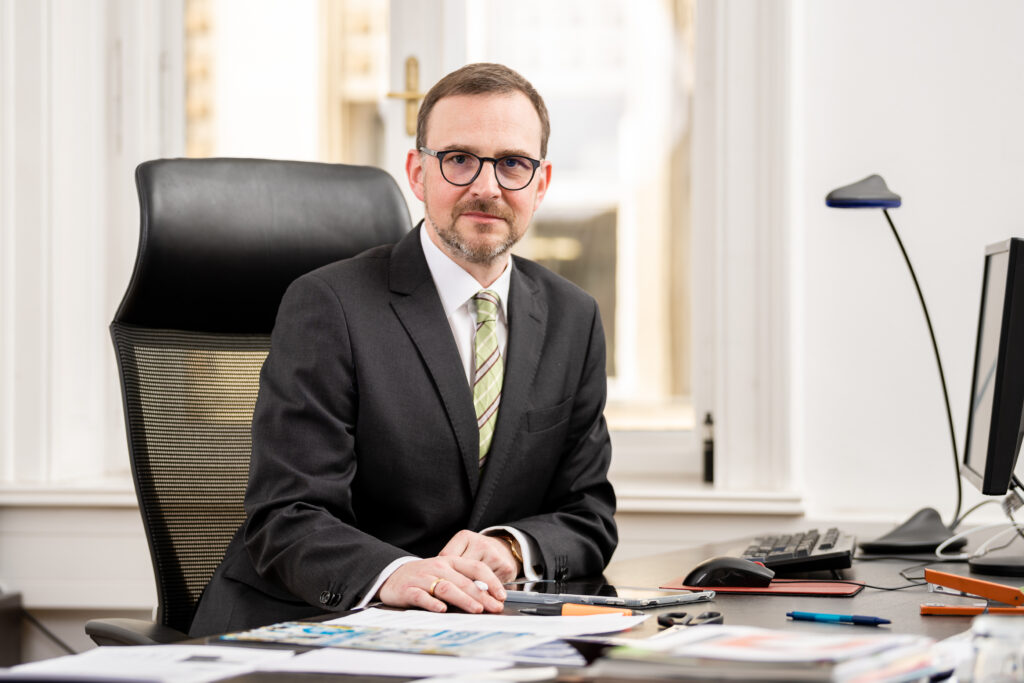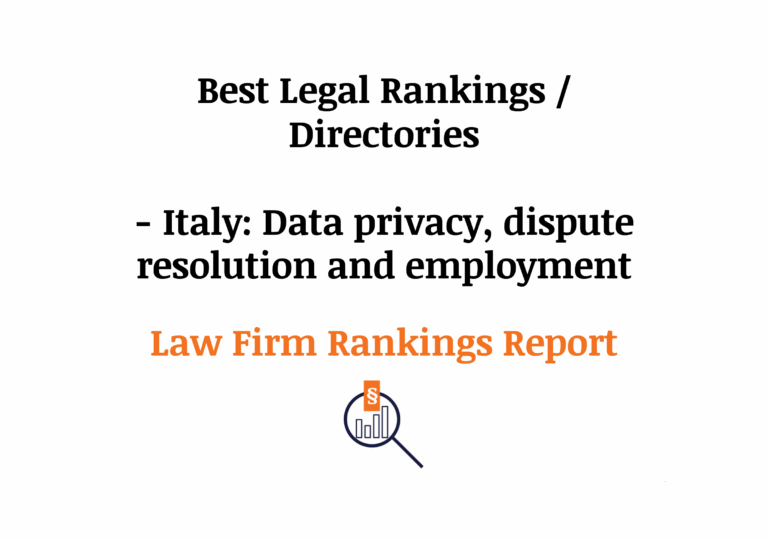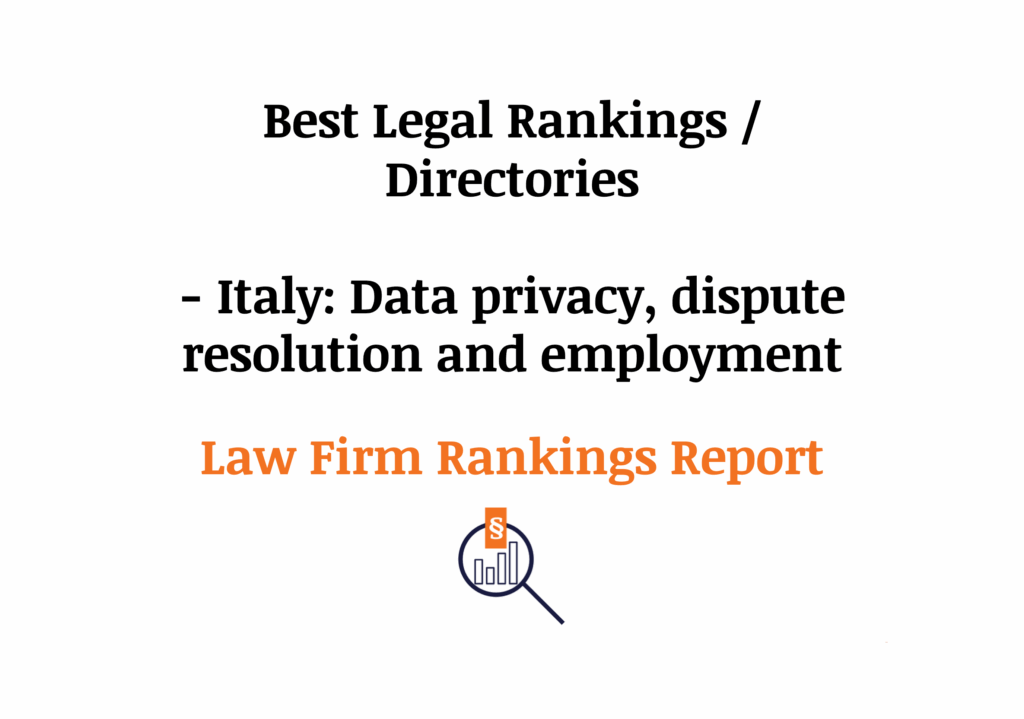Mr. Breunlich has been Managing Partner of lawyers & more executive search & consulting since October 2016.
The lawyer has many years of experience as a manager in the financial services industry. In 1998, he joined a major Austrian bank and since 2006 has held various executive board, management board and supervisory board positions, including responsibility for human resources, sales, operations, and IT. Since 2015, he has been working as a personnel consultant for lawyers & more.
Mr. Breunlich is responsible for the consulting areas Banking / Finance / Insurance, as well as for career coaching for experts and executives. He advises well-known law firms and companies from all industries on the topics of employer branding as well as strategy, organizational and executive development.

lawfirmrankingsreport.com: Mr. Breunlich, where do you see the current and future labor market trends and challenges for law firms?
Bernhard Breunlich: The baby boomer generation, i.e., those born between 1950 and 1969, are just retiring and leaving a large gap. There will then be about 50,000 fewer people available on the labor market each year.
In addition to the reduction in the sheer number of workers, however, an outflow of know-how will also be noticeable. On the one hand, this has to do with training, but above all with the practical know-how that has not yet been acquired. Someone who has spent 40 years or more in professional life naturally knows the subject of a task better by far. Young people must therefore first be trained extensively until they can provide the firm or company with appropriate added value.
Existing workers are further overburdened by the departure because they have to take on more tasks.
lawfirmrankingsreport.com: So what can law firms do?
Bernhard Breunlich: When recruiting, law firms have to think carefully about the positioning they want to adopt in the context of employer branding in relation to the labor market.
It is essential for a law firm to choose a positioning that is actually lived in the firm. It is of little use to present oneself as something that one is not. Of course, potential applicants do not orient themselves on the real positioning, but on the message communicated to the outside. If someone then joins the firm and realizes that the firm’s culture is completely different, young employees in particular will quickly leave. As a result, the firm not only loses time and money, but usually receives no value at all in return.
One’s own positioning can also be “anachronistic”, if you like. If you have a very competitive culture, for example, then it makes sense to communicate it that way. This is not automatically a bad thing and has its supporters, who are then happy to apply and can offer the firm real added value.
In addition, law firms today should communicate and live an internal collaboration culture in which there is a credibly constructive error culture. This means that mistakes are clearly addressed, but with the aim of learning from them for the future: the mistake as a learning opportunity. Today’s new generation expects much more intensive feedback behavior. The need for individualism is also much stronger than before.
lawfirmrankingsreport.com: How can law firms motivate their employees?
Bernhard Breunlich: Today, employees are increasingly demanding clarity about what their job contributes to. This can be global issues such as sustainability, climate protection or social responsibility, or also the contribution to one’s own career and development plan. Law firms today should show a willingness to develop one with employees. This is understood as an expression of interest in the person and appreciation.
lawfirmrankingsreport.com: How do you see the topic of flexible working hours and home office in law firms?
Bernhard Breunlich: Young employees today often show little or no understanding for rigid working time models with fixed starting times, for example. Or if there is no home office option at all. Nevertheless, the next generation of employees should not be accused of a lack of work ethics: They are definitely willing to perform and have a high focus on results. Here, it is very helpful for law firms to clearly communicate the expected results of the work and also to clearly specify the framework conditions regarding the time and place of work performance. In the context of making the world of work more flexible, numerous organizational considerations are necessary in preparation. For example, a responsible lawyer should clearly define when personal meetings are necessary, which work is suitable for the home office, and when the desire for time flexibility must be subordinated to the time constraints of advising the client. If this is not made sufficiently clear in the organization, problems are inevitable, as an example from our practice showed: One of our clients, a medium-sized law firm, had a huge problem getting its administrative staff back into the office after the first waves of lockdown following the Corona pandemic. People really appreciated the flexibility of the home office, and also that the work at hand could just as easily be done from home. Since the meaningfulness or necessity of the presence of work was not sufficiently explained, the willingness to return to working in the office was very low or often the cause of discussions.
lawfirmrankingsreport.com: How do you support the necessary change in law firms?
Bernhard Breunlich: I hold direct talks with the decision-makers within the framework of a specific assignment or occasion, and we work out the “pain points” together. This is usually the most difficult part because this is where our own experiences typically meet the needs of the younger generation. The open-ended reflection is often hindered by the question of why one should change as an organization or employer when one has been very successful in the past. We support the path of laying out the cards for the future with our observations and targeted questions. And once the neuralgic points have been identified, we work with the client to develop a path for implementation.
lawfirmrankingsreport.com: Thank you for the interview!
Picture (c): Klaus Ranger Fotografie (www.klausranger.at)
Negotiation training for lawyers and jurists
We help lawyers to improve their negotiations skills inside and outside of a courtroom.
Inhouse counsel are supported by improving their negotiation skills when dealing with sellers, works council etc.












